George Denis Patrick Carlin, known for his sharp wit and incisive social commentary, remains one of the most influential comedians of all time. His career spanned decades, and his humor challenged societal norms, making him a voice for many who questioned authority and the status quo. However, before he became a household name, Carlin’s life took a different path—one that led him to serve in the United States Air Force. While his military service may seem at odds with his later persona, it played a significant role in shaping the man he would become.
George Carlin’s Early Life and Enlistment
George Denis Patrick Carlin was born on May 12, 1937, in New York City to an Irish father, Patrick Carlin, and an Irish-American mother, Mary Bearey. Carlin grew up in a tough neighborhood and was known for his rebellious nature from an early age. He was raised on West 121st Street in a part of Upper Manhattan commonly known as “white Harlem.” By the time he was a teenager, Carlin had developed a deep disdain for authority, a trait that would become central to his comedy. He attended Cardinal Hayes High School in the Bronx. However, like many young men of his generation, Carlin found himself at a crossroads after high school. Unsure of what to do next and eager to escape his circumstances, he enlisted in the United States Air Force in 1954 at the age of 17.
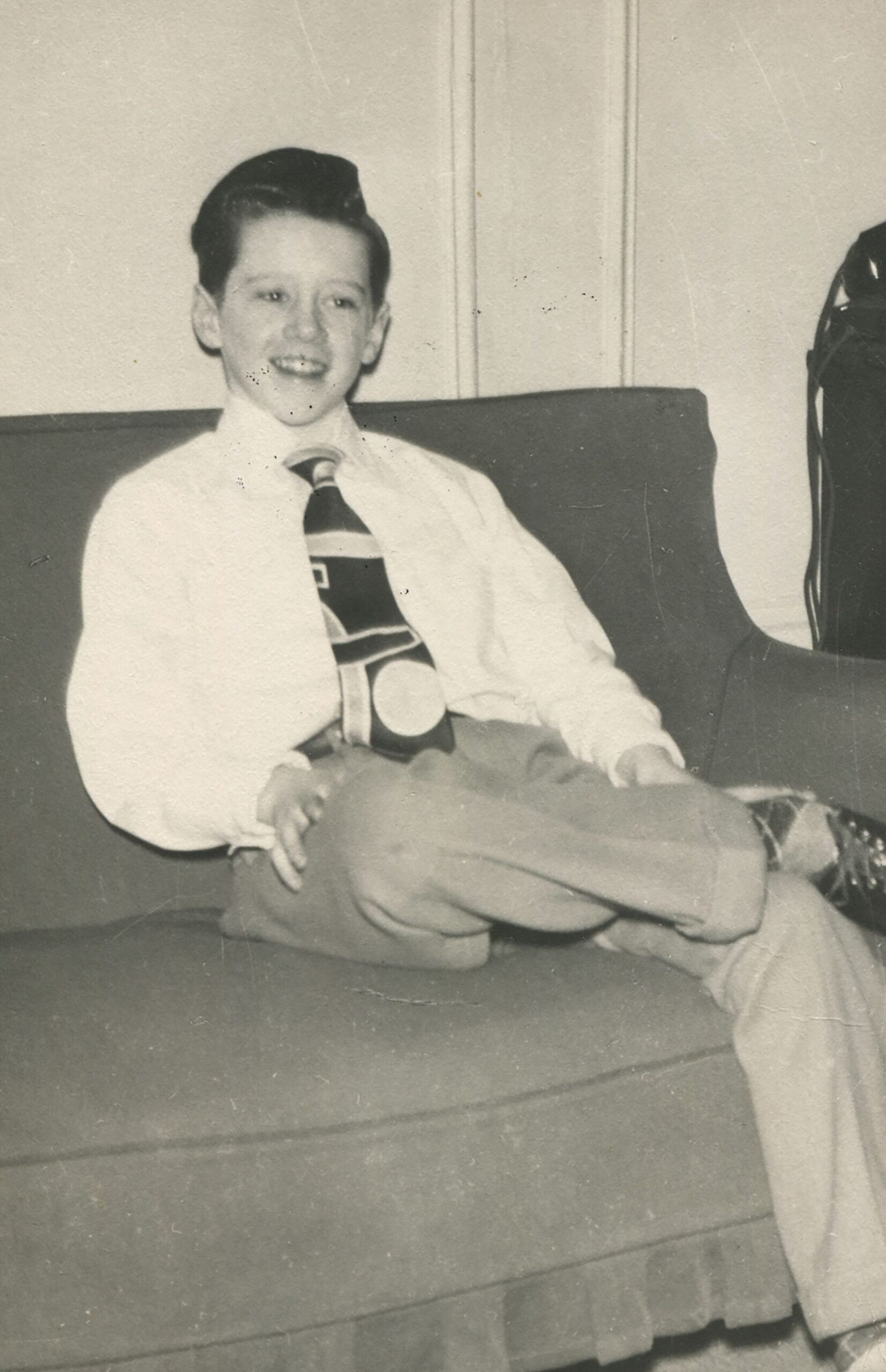
Carlin’s decision to join the military was influenced by a desire to leave New York and gain some independence. The Air Force offered him an opportunity to see the world and earn a living, even if it meant submitting to the very authority figures he often rebelled against. However, Carlin’s time in the Air Force would be anything but smooth.
George Carlin’s Military Service in the United States Air Force
George Carlin was assigned to Barksdale Air Force Base in Bossier City, Louisiana, where he served as a radar technician. His duties involved maintaining and operating the radar systems used to monitor and track aircraft. While Carlin was proficient at his job, his rebellious nature often put him at odds with military discipline.
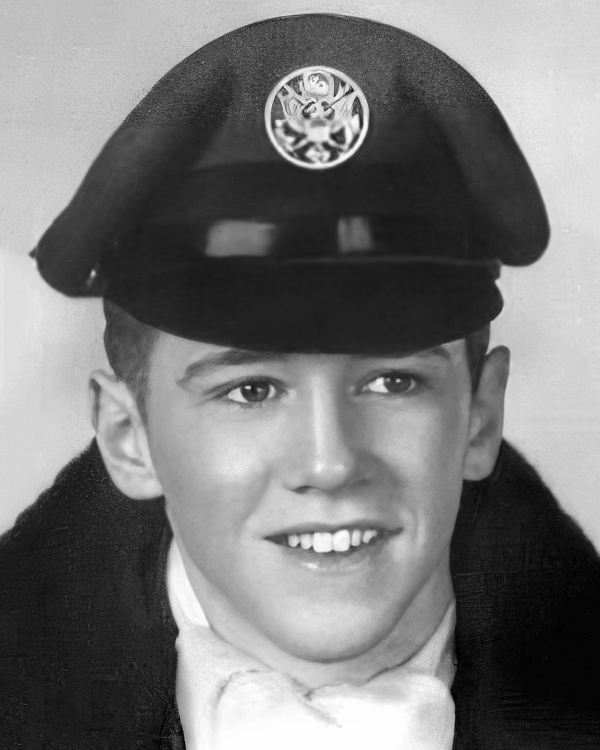
During his time in the Air Force, Carlin struggled with authority and frequently found himself in trouble for insubordination. His disdain for the rigid structure of military life led to multiple disciplinary actions, including demotions and confinements. Carlin himself later admitted that he was not a model airman, and his rebellious streak only grew stronger during his service.
George Carlin was court-martialed during his time in the U.S. Air Force for several reasons:
- Insubordination: Repeatedly defying orders and showing a lack of respect for military authority.
- Failure to Obey Orders: Refusing to comply with instructions from his superiors.
- Absent Without Leave (AWOL): Leaving his post without proper authorization.
- Lack of Discipline: General behavior that did not conform to military standards and expectations.
Despite his challenges with authority, Carlin’s time in the Air Force was not without its benefits. It was during this period that he began to develop his comedic talents. Thanks to his gripping comedy and amazing sense of humor, Carlin became a DJ for the KJOE radio station while serving. His work at KJOE helped him explore other opportunities in the entertainment industry. Carlin would entertain his fellow airmen with impressions and jokes, often poking fun at the very system he was a part of. These early experiences as a performer helped Carlin realize his passion for comedy and set the stage for his future career.
George Carlin’s Turning Point: Discharge from the Air Force
Carlin’s time in the Air Force came to an end after three years when he was discharged under honorable conditions in 1957. The official reason for his discharge was “incompatibility with military life,” a description that Carlin would later joke about in his comedy routines. This discharge marked a turning point in Carlin’s life, as it allowed him to pursue his true passion: comedy.
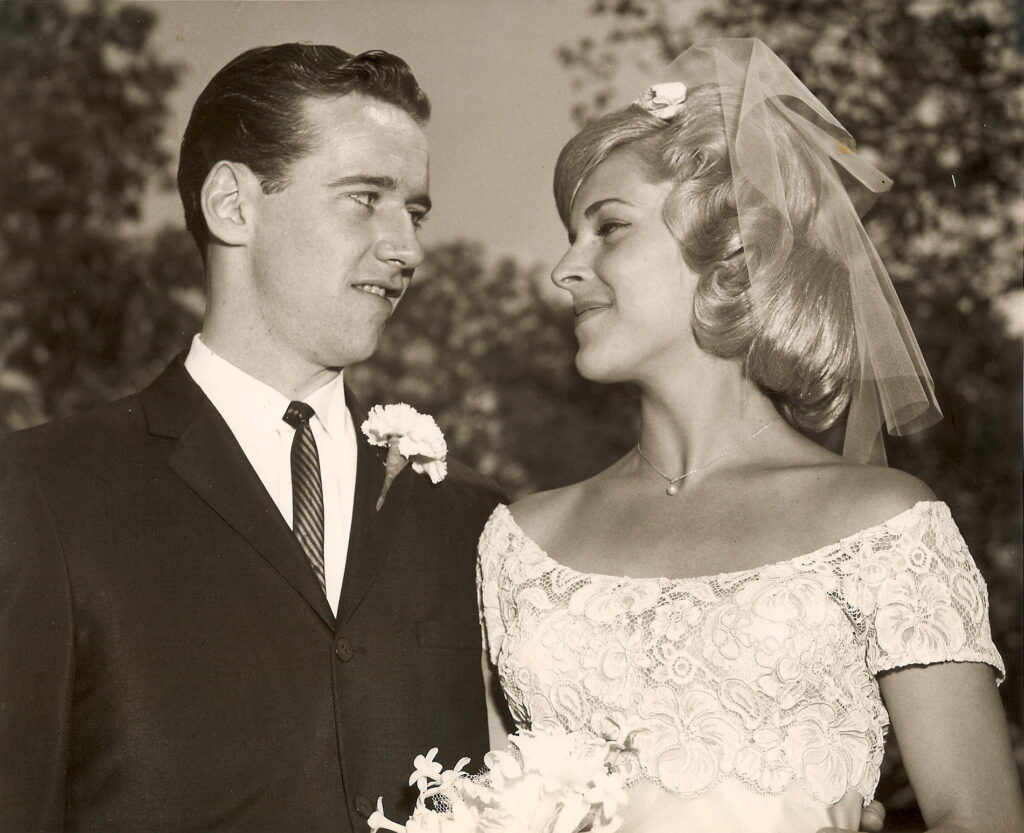
Upon leaving the Air Force, Carlin returned to civilian life with a newfound sense of purpose. He knew that he wanted to make people laugh, and he wasted no time in pursuing this goal. Carlin moved to Boston, where he began working as a disc jockey at a local radio station. It was here that he honed his skills as a performer and developed the sharp, observational humor that would become his trademark.
The Influence of Military Service on Carlin’s Comedy
While George Carlin’s military service may seem at odds with the anti-establishment persona he later cultivated, it played a significant role in shaping his worldview. The discipline and structure of the Air Force contrasted sharply with Carlin’s rebellious nature, and this tension became a central theme in his comedy.
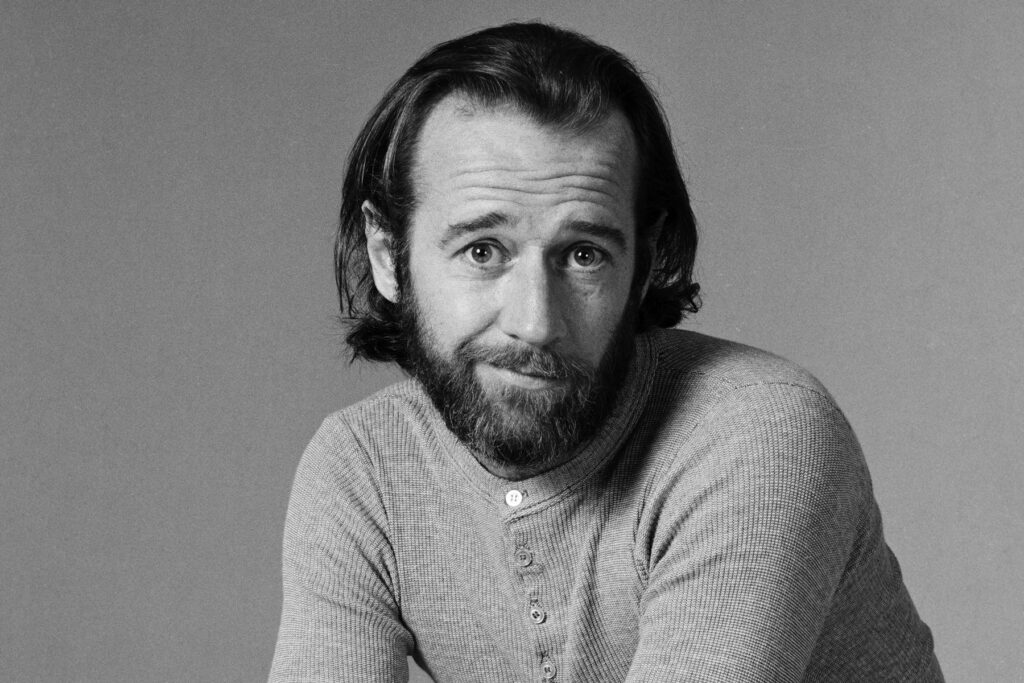
Carlin’s time in the military exposed him to the absurdities of authority and bureaucracy, experiences that he would later draw upon in his stand-up routines. His comedy often targeted the hypocrisy and contradictions of societal norms, a perspective that was undoubtedly influenced by his time in the military. Carlin’s ability to find humor in the rigid and often nonsensical rules of the military laid the foundation for his later work, which challenged audiences to question the status quo.
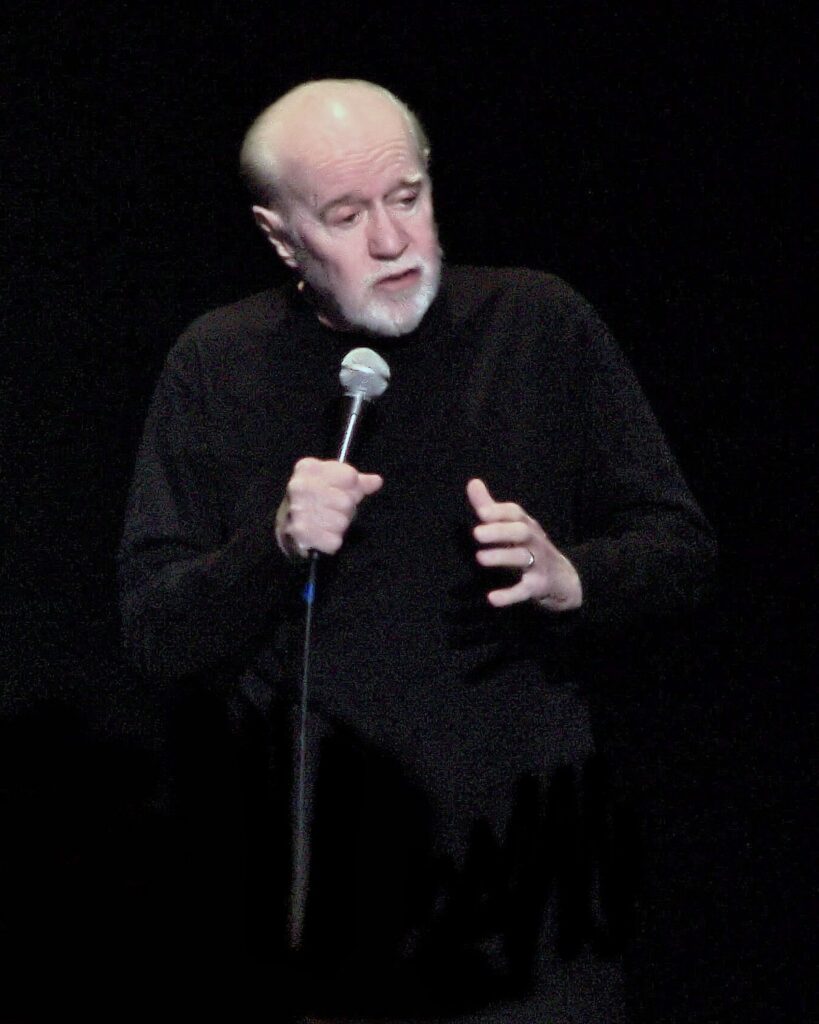
One of the most notable ways Carlin’s military experience influenced his comedy was in his approach to language. During his time in the Air Force, Carlin became acutely aware of how language could be used to control and manipulate. This realization became a central theme in his comedy, particularly in his famous “Seven Words You Can Never Say on Television” routine, which highlighted the arbitrary nature of censorship.
George Carlin’s Career Accomplishments
- Stand-Up Comedy Pioneering: Revolutionized stand-up with his “Seven Words You Can Never Say on Television” routine, challenging censorship and societal norms.
- Television and Film: Starred in numerous HBO specials and appeared in films like Bill & Ted’s Excellent Adventure.
- Grammy Awards: Won multiple Grammys for his comedy albums.
- Kennedy Center Mark Twain Prize: Posthumously awarded for American Humor in 2008.
- Author: Published several best-selling books, including Brain Droppings and Napalm and Silly Putty.
- Record-Breaking Performances: Set the record for the most stand-up comedy specials on HBO, with a total of 14 specials spanning over four decades.
- Cultural Icon: Carlin’s routines on religion, politics, and language made him a cultural icon, influencing generations of comedians and social critics.
- Hollywood Walk of Fame: Honored with a star on the Hollywood Walk of Fame in 1987.
- Radio and Voice Work: Voiced characters in popular shows like Thomas the Tank Engine and The Simpsons.
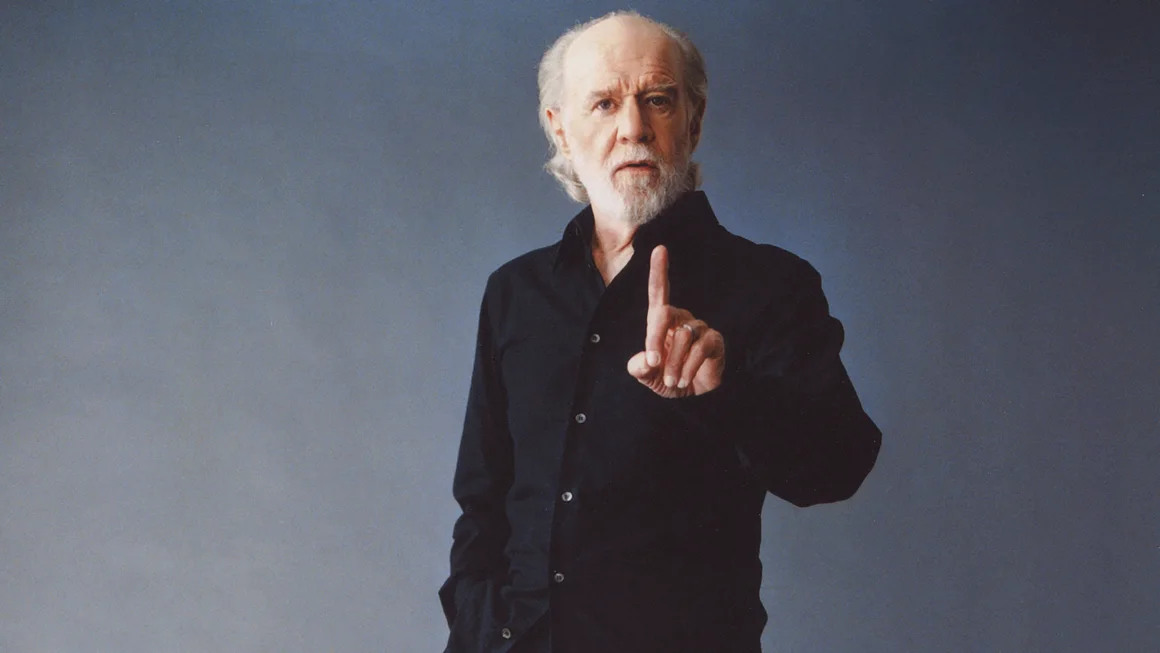
George Carlin and Social Causes
George Carlin was not widely known for his philanthropic activities, but he was affiliated with some causes during his lifetime.
- Support for Free Speech: Carlin was a strong advocate for free speech and supported organizations that defended First Amendment rights. His controversial “Seven Dirty Words” routine led to a landmark Supreme Court case on free speech and broadcasting.
- Freedom From Religion Foundation: Carlin was honored by the Freedom From Religion Foundation for his critiques of religion and support of the separation of church and state. While he didn’t formally accept their award in person, his work aligned with their mission.
In his comedy routines, Carlin often mocked large charitable organizations and celebrity-driven philanthropy.
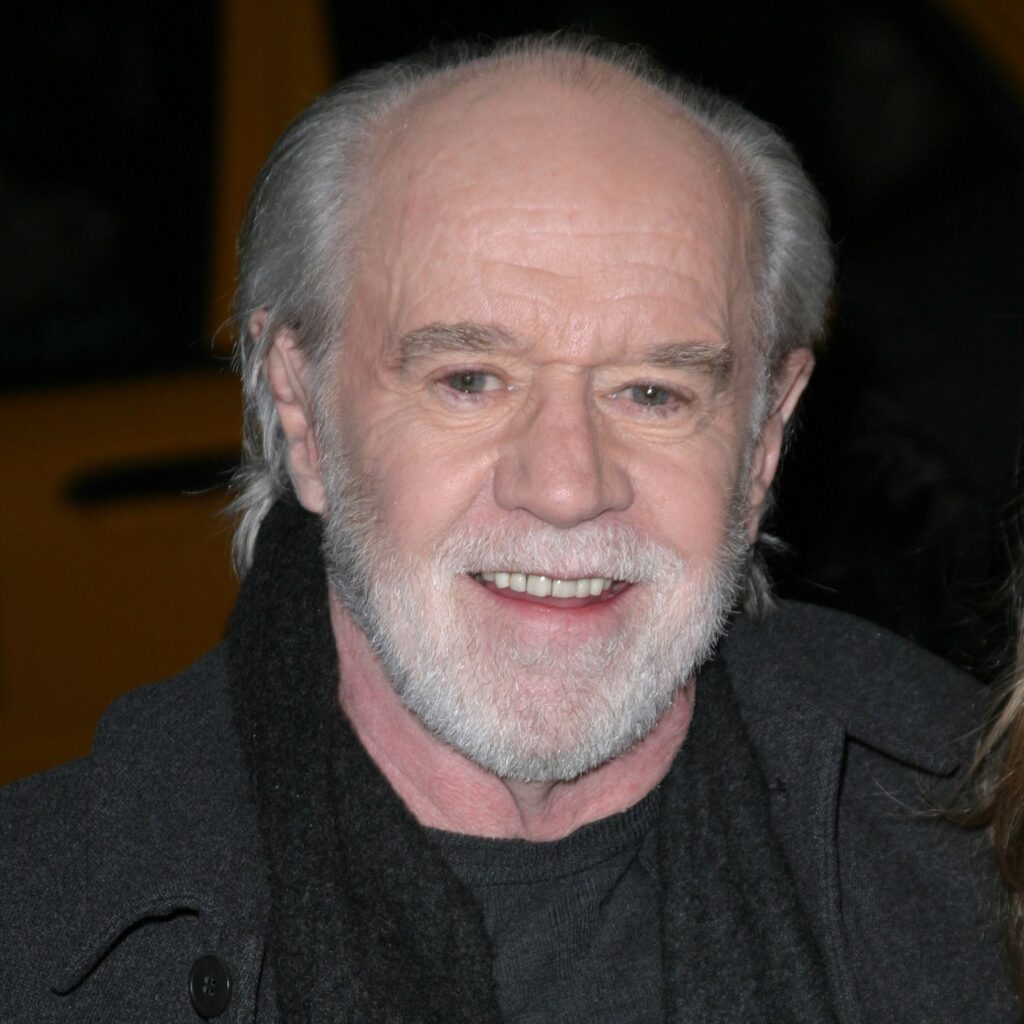
At TogetherWeServed, we honor George Carlin not only for his contributions to comedy but also for his service to his country. His story is a reminder that the path to greatness is often filled with challenges, and that even the most rebellious spirits can find their way to success. George Carlin may have left the Air Force with a less-than-stellar record, but he went on to achieve greatness on his own terms, using the lessons he learned during his service to entertain and inspire millions of people around the world.
Learn About Other Famous Veterans On The TogetherWeServed.com Blog
If you enjoyed reading about George Carlin’s military service, please browse the stories of other celebrities who served on our blog. You will also find military book reviews, veterans’ service reflections, famous military units and more on the TogetherWeServed.com blog. If you are a veteran, find your military buddies, view historic boot camp photos, build a printable military service plaque, and more on TogetherWeServed.com today.

Whew…that’s a relief! I thought you had to be a perfect AJ squared away Sailor to have a shot in life. Nah, no I didn’t. Haha, years ago, I busted that myth. Look, AW2 Esch, you were right! Even if the Navy wasn’t always fair, we didn’t have to let it get us down. I hope you did well, after the Navy.
Loved this; Loved George Carlin!
One of the funniest people I have ever heard.
It doesn’t seem like he added to the military, but rather worked for its weakening by detracting from its mission. Nothing here to justify the existence of the article.